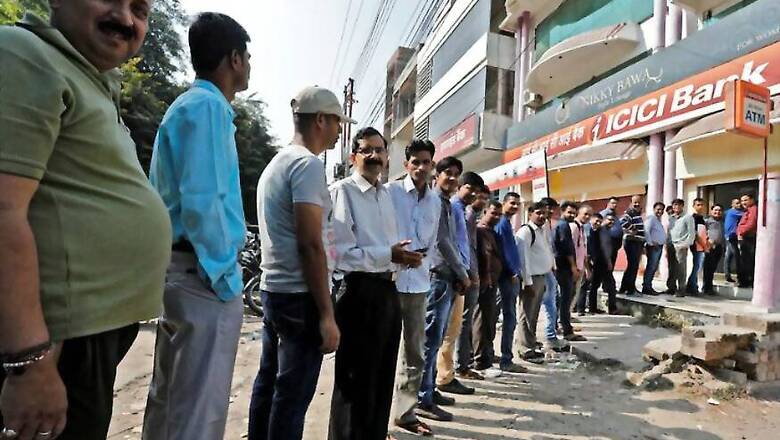
views
New Delhi: “Kadak chai jaisa kadak kadam zaroori hai (we need a strong step just like a cup of strong tea),” a supervisor in a local plastic production unit at Okhla Industrial Hub told News18.
Post the Prime Minister’s move to demonetise Rs 1000 and Rs 500 notes to curb black money, large parts of the country have been struggling to get cash with big queues in front of banks and ATMs.
But the working population at Delhi’s Patparganj and Okhla Industrial Area is not complaining. They consider their hardship as a sacrifice in the “freedom struggle against the corrupt and black money hoarders”.
Rajpal Saraogi, supervisor at Pacific Plastics Pvt Ltd, a large scale plastic ware manufacturing unit in Okhla Industrial Phase-1 was supportive of the demonetisation drive and said it had ‘good intentions’.
“You cannot clean the impurities in the sea without diving in it, how long can we talk about sitting by the shore?” he said while talking about the “little difficulties the common man was facing” at the banks.
Saraogi was not alone, despite daily wage labourers working in these manufacturing units reporting late to work as they join long queues in front of banks early in the morning.
Manohar Sharma, a security guard at the Concord Electrical Industries unit compared the hours spent waiting to exchange cash to the struggle of Bhagat Singh and Mahatma Gandhi against the British.
“Who thought that common people could play a role in freeing the country from the clutches of the corrupt? These corrupt and black money hoarders are the new age British we are reeling under. Today morning I was standing at the line for three hours to exchange Rs 2,000, but it felt great to imagine the rich suffering,” he said.
Workers and labourers at Patparganj Industrial Hub echoed similar emotions and most people News18 spoke to consider the recent demonetisation drive as patriotism.
Labourers at Vikas Manufacturing Industries spoke in unison about how this step ushered in by the Prime Minister would be game changer in bridging the ever-widening gap between the ‘haves and the have-nots’.
Saqib Ajmal, a worker at the same unit, has been surviving on Rs 100 since the past three days. But he did not have a word against demonetisation and was not shy from praising the government’s later attempt to crack a whip on the people who were going repeatedly to banks for cash.
“The government knows that common man is being harassed, and has also introduced the move to ink every individual with indelible ink. Now it is upon us to show patience. We are trying to manage in a little for a few weeks now,” he said. Ajmal’s wife is admitted in hospital for a malignant tumour.
Managers and supervisors at a few manufacturing units at both the industrial areas said that daily labourers were not suffering because the cash withdrawal limit on current accounts is Rs 50,000 which is was enough to meet expenses and wages for a few weeks.
Trilok Nath, supervisor at Spentex Industries Ltd, a textile manufacturing firm at Okhla Industrial Hub was hopeful for relief at banks in the near future.
“It will take some time for the situation to normalise, but you will soon see price of goods being reduced and standard of living of the poor being uplifted. It’s payback time for these rich ones,” he said, before downing shutters for the lunch break.




















Comments
0 comment